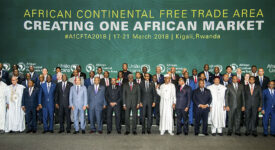The European Commission confirmed that it would resume negotiations with Japan on an mammoth free trade agreement in Tokyo next week. Both parties have already held five rounds of talks throughout last year which is why Brussels decided to take a break and review the entire process and progress achieved. After the mutual talks had been thoroughly analyzed, the EU made its decision to proceed. EU member states agreed on June 26 that only “an agreement with a higher level of ambition would be acceptable and worth carrying on”. In other words, only an agreement that will deal with issues such as public procurement, agriculture, non-tariff trade measures, and market access in goods will be considered.
The EU and Japan kicked off their trade talks about one year ago with the objective to create a trade framework that would account for about a third of the world’s economic output and 40 percent of world trade. Besides these talks, both sides are interestingly involved in trade negotiations with the United States and India at the same time. Moreover, Tokyo is also engaged in the US-supported Trans-Pacific Partnership. Japanese Prime Minister, Shinzo Abe, called for the EU to re-start talks briskly pledging to do his utmost to make the EU-Japan deal as successful as possible. Japan is the EU’s second most important trading partner in Asia after China, in terms of volumes traded. Both EU and Japan are crucial trade partners to each other, while Japan is the number one investor in EU28. The EU imports mostly transport equipment, chemical products, and machinery. Japan imports mainly agricultural products, machinery, transport equipment, and chemical products.
Article Tags:
Brussels · EC · India · Japan · Shinzo Abe · Tokyo · US · US-supported Trans-Pacific PartnershipArticle Categories:
ECONOMY & TRADE






